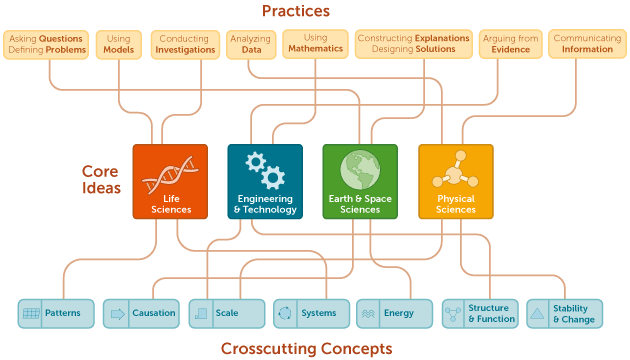- Falcon Homeschool Program
- Robin Walters, Science
- Life Science
-
2023-2024 Themes in Life Science - Pacing Guide
Life Science is the scientific study of living things (organisms). In this course students will explore and find answers to the following questions as they learn about key ideas in Life Science:
-
How do the structures of organisms enable life’s functions?
-
How do organisms interact with the living and nonliving environments to obtain matter and energy?
-
Why do individuals of the same species vary in how they look, function, and behave?
-
How does genetic variation among organisms affect survival and reproduction?
-
How do organisms detect, process, and use information about the environment? (if time allows)
* We do not have a reference textbook for this course. Materials will be provided through Schoology.
Quarter
Thematic Unit
Life Science Focus Topics
Related Topics or elaboration
1
What is life and how does it work?
Microscopy;
Cells- Plants, Animals, Bacteria, Protists, Fungi, Viruses;
Adaptations of organisms
Diversity of life, Classification (Taxonomy)
2
Food for thought- Who eats what and why?
Relationships in ecosystems (Food chains/webs);
Intro. to Photosynthesis and Cellular Respiration;
Cycling of matter and energy
Decomposition, Types of ecosystems, Biomes, Disturbances to ecosystems, populations.
3
Hey- We all have DNA…
Why are we all so different?
Reproduction (Gametes-at the cellular level);
Introduction to Genetics, inheritance patterns, Punnett Squares
DNA structure, DNA reproduction, protein synthesis, genetic conditions
4
Celebrating our differences- How genetic variation among organisms affects survival and reproduction
Adaptations, natural selection, biodiversity, speciation
Taxonomy, extinctions, fossil record, carbon dating
Other options or as time permits
What’s going on?- How organisms sense and respond to their environment
Nervous systems of organisms, human brain parts and functions.
Sensory organs, memory, learning, stimuli-response relationships
Notes: The thematic units are subject to change. This document will be updated periodically and posted through the specific course listing in Schoology. If you have questions, comments, or concerns, please contact Ms. Robin (robin.walters@CO01900838.schoolwires.net).
FHAP - Themes in Science Courses
FHAP Themes in Science classes are delivered once or twice per week (Tuesday and/or Thursday) in a thematic unit-studies format. During class, students will have the opportunity to explore and discover science in an active, collaborative and creative way. In addition to the classroom activities, students are expected to complete related homework assignments. Because of the limited time designated to learning via FHAP science classes that meet once per week, parents are encouraged to expand upon their student’s learning* while at home (beyond the homework assignments) in order to consider these courses as full year studies and assign a credit to the transcript.
[*Connections to the course text are provided on the pacing guide as a possible resource.]
The content of all FHAP science courses will be drawn from key ideas in science that have broad importance within or across multiple science disciplines, including Physical Science, Life Science, and Earth and Space Science. In addition to the science content, the science classes will integrate crosscutting science principles as opportunities arise. Students will engage in science practices to build, deepen, and apply their knowledge of key ideas and crosscutting concepts.

-


